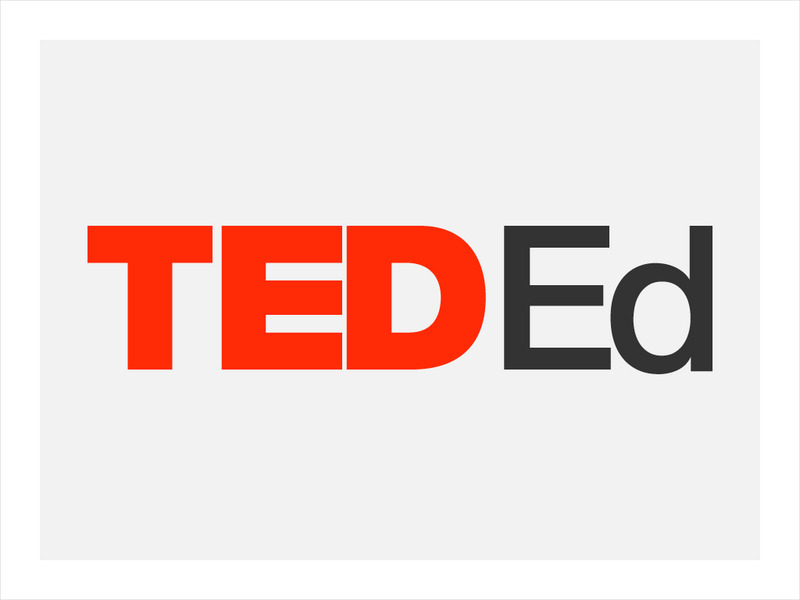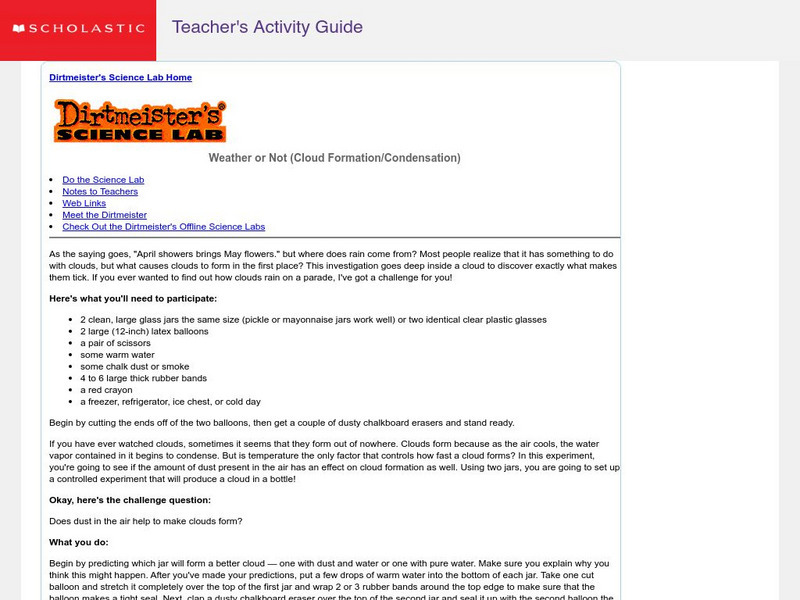Hi, what do you want to do?
Curated OER
Cosmic Ray Momentum
Students describe how cosmic rays achieve high kinetic energy via conservation of momentum.
Curated OER
Making Layered Hail Stones
Students explore how hail forms in the atmosphere, why hailstones are layered, and what accretion is. They also learn what supercooled liquids are.
Curated OER
Spontaneous Britishstrokes
Students are introduced to Chinese painting and they examine how Daoist phiolosophy influenced artistic style. They discuss how art and artistic technique as a reflection of Daoist culture. Students discuss how art is a reflection of...
Curated OER
The Function Box
Students look around classroom and identify any patterns they see, describe patterns and explain why they are patterns, use pencil to demonstrate arithmetic patterns by tapping, practice predicting patterns by using Function Box, and...
Curated OER
Exploring Marine Objects
Students identify the sources of water on Earth. For this life science lesson, students list the different plants and animals that live in the ocean. They explore marine objects in the lab and draw them.
Dan Satterfield
Dan's Wild Weather Page: Clouds
Find out all about clouds and how they are formed at this site from Dan's Wild Weather Page. Nice photographs of different types of clouds enrich the site.
University Corporation for Atmospheric Research
Ucar: Clouds
Weather site for kids highlights clouds. Discover how they are formed, learn to make fog in a jar, read about the damage they can cause and take a cloud quiz.
Other
Port Discovery Children's Museum: Stem at Home: How to Diy Cloud in a Bottle
Do you ever wonder what happens when a cloud gets too full? Find out in this easy and fun experiment.
Center of Science and Industry
Cosi Columbus: Clues About Clouds
Science experiment that simulates how clouds are formed. Includes full list of materials, procedures, and scientific explanation of what must happen in the atmosphere for cloud formation to occur.
Science Buddies
Science Buddies: Cumulus Maximus: Make Your Own Cloud!
In this experiment, you'll make your own cloud in a jar, and get to test the conditions that are required to make a cloud form.
University Corporation for Atmospheric Research
Ucar: Clouds in the Air: Why Are They There?
An experiment that demonstrates why there are clouds in the sky. Start with air, invisible water vapor, particles we call condensation nuclei, and air pressure...the cloud comes later!
University Corporation for Atmospheric Research
Ucar: Create a Portable Cloud
In this hands-on activity, students experiment to discover how moisture, pressure, temperature, and condensation nuclei play a role in cloud formation.
Science Education Resource Center at Carleton College
Serc: Investigating How Do Clouds Form? What Are the Different Types of Clouds?
In this investigation, young scholars will observe and learn about the different types of clouds and be able to explain in their own words how clouds are formed. They will also observe an experiment illustrating how clouds form.
University Corporation for Atmospheric Research
Ucar: Clouds [Pdf]
Teachers and/or students are given four science experiments related to clouds in our atmosphere. Photos and brief descriptions of the main types of clouds ..Cirrocumulus, Cirrus, Altocumulus, Cumulus, Cumulonimbus, Stratus .. are included.
Science Education Resource Center at Carleton College
Serc: Cloud Inquiry Investigation & Id
Students describe and create an experiment to indicate that a cloud will form under specific conditions.
Other
Easy Science Experiments: Clouds in a Bottle
How does a cloud form? This resource demonstrates how to create a cloud in a bottle. This makes a great experiment for a science fair project.
Other
Steve Spangler Science: Denver's Brown Cloud
Learn how fluids move through our atmosphere and water. This experiment explains atmospheric convection currents (thunderstorms), the Gulf Stream, and temperature inversion. A video is included.
TED Talks
Ted: Ted Ed: Cloudy Climate Change: How Clouds Affect Earth's Temperature
As the Earth's surface temperature gradually rises, it has become vital for us to predict the rate of this increase with as much precision as possible. In order to do that, scientists need to understand more about aerosols and clouds....
American Geosciences Institute
American Geosciences Institute: Earth Science Week: Sky and Cloud Windows
In this activity, students will conduct experiments or participate in demonstrations to answer questions about sky and weather phenomena.
Scholastic
Scholastic: Dirtmeister's Science Lab: Weather or Not
Simple experiments for exploring clouds and cloud formation. You'll find out whether dust in the air helps cloud formation and discuss how dust helps meteorologists make weather predictions.
PBS
Pbs Learning Media: Cloud Foal
In this video segment from Nature, experience life in the wild for Cloud, a newborn colt.
PBS
Pbs Learning Media: Nature: Cloud Age Four
In this short Nature video, experience the environment of Cloud, a four-year old horse living in the wild. This is one in a series of three videos about Cloud. [2:23]
ReadWriteThink
Read Write Think: Lonely as a Cloud: Using Poetry to Understand Similes
Students identify similes in poetry and gain experience in using similes as a poetic device in their own work.


















